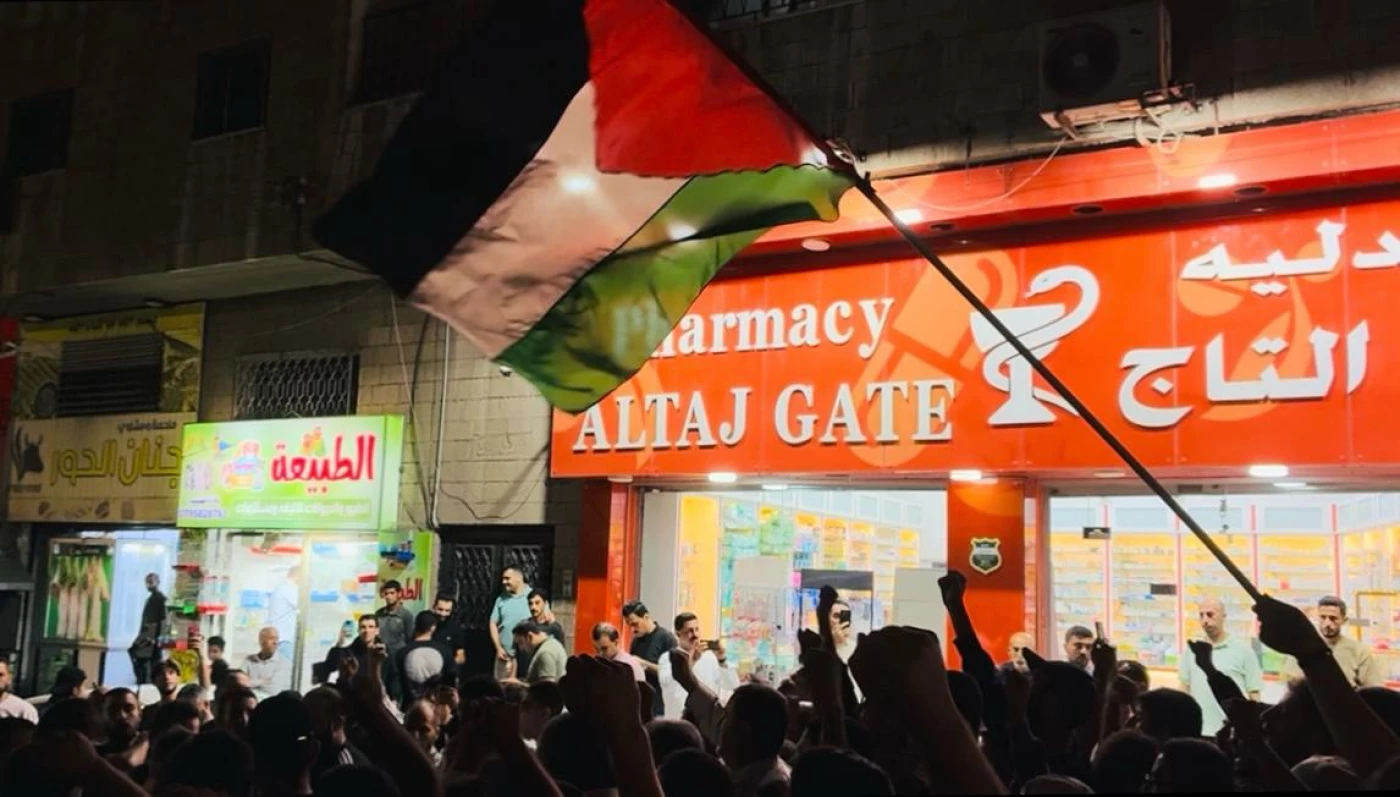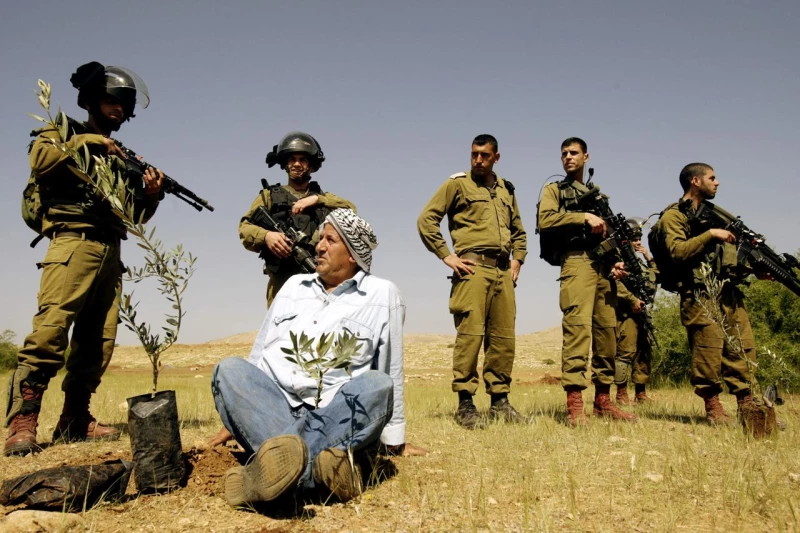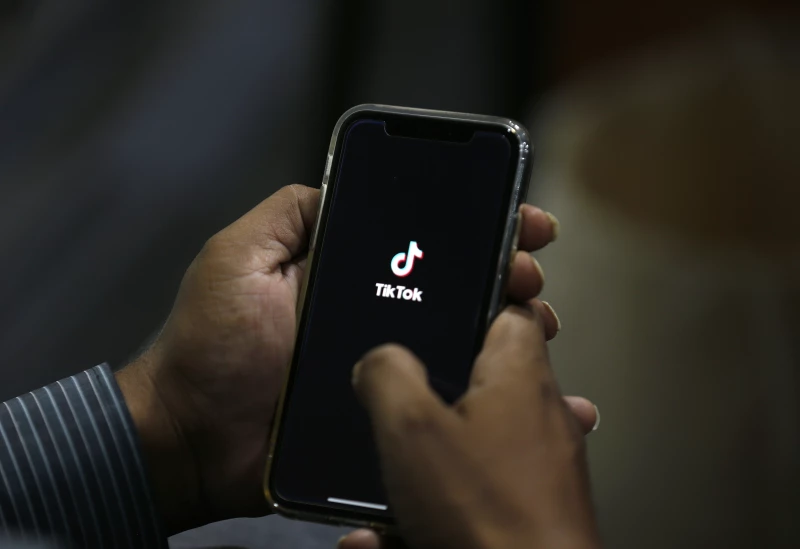AMMAN, Jordan – In the Jordanian capital, I’ve gotten to know M.—a Jordanian-Palestinian originally from Al-Quds, Jerusalem—who has never set foot in Palestine. He can’t. He’s one of many: in Jordan, over half if the population is descended from Palestinians who fled as refugees both pre- and post-1948 and the creation of Israel.
Since arriving in Jordan, I've expressed my interest to M in the frequent rallies in support of the Palestinian cause. As protests in my home country were picking up steam, ushering in an endless roll of photos and videos of mass mobilizations from north to south, delving into the frustrations and grief of Amman's immense Palestinian diaspora proved an intriguing prospect.
M. understood that. After months of hesitation, he informed me of a rally taking place on October 7 in an East Amman neighborhood rarely visited by foreigners. The neighborhood is Jabal Al-Taj—predominantly Palestinian, very poor, and with a somewhat stigmatized image in broader Jordanian society. It was the epicenter of Black September—the 1970 armed conflict between King Hussein’s Jordanian army and Yasser Arafat’s Palestine Liberation Organization (PLO).
He grew up there; everyone knows and respects him. When I checked with a friend from Zarqa—another “difficult” city in Jordan—she strongly advised me not to go. “It’s dangerous; you’re a foreign non-Muslim woman. I don’t even go there, habibti, and I’m Palestinian too.” At the same time, M. reassured me but gave me very specific instructions: “Dress completely in black, don’t leave any skin uncovered, and if you can, cover your head with a hijab. Once you’re there, stay close to the women; they’re either at the back of the march or along the sides.”
I had my doubts, so I talked it over with my colleague. He looked up the neighborhood and found warnings, especially for women. He wasn’t thrilled, but he insisted on coming with me. We arrived at Al-Shaheed Mosque just before the last prayer ended. I followed M.’s advice: dressed head to toe in black, a hijab on, and a keffiyeh I’d bought earlier. Even so, we drew stares. It was obvious—to us and to the locals—that we weren’t part of their community. There, everyone knows everyone. A young man caught my attention by shouting “Free Palestine” to me in English. Before I could process it, a group of men streamed out of the mosque, chanting hypnotically.
We joined the march. Without meaning to, I ignored M.’s guidance. I was too excited to pay attention to the crowd’s order, and we ended up in the middle of the procession, but nobody complained. A man called out phrases, and the crowd echoed them. We were swept up in the surge of energy, even though we barely understood the Jordanian-Palestinian dialect. A man approached my colleague and asked in English where he was from. “Ireland,” he said. The man walked off, then came back a few minutes later: “Hey bro, did you say you’re from Thailand?”
About halfway through, we paused. From the center of the crowd, a large Palestinian flag rose and waved. A self-appointed spokesperson led the chants while the crowd was raising their right fist.
“We, the people, came to speak our word (we the people) and deliver our message (we the people). Our voice is loud everywhere (we the people). Who refused the occupation? (We the people) Who cries out with all his being? (We the people) The enemy's action is occupation.”
We kept moving and finally stopped a few hundred meters later. A man took the microphone: Talal al-Bargothe, the local district leader of the Muslim Brotherhood–affiliated Islamic Action Front. I didn’t yet know that M. would soon arrange for us to interview him. He was clearly respected—everyone fell silent: women, men, and children. A boy briefly lifted a Muslim Brotherhood flag, and a man immediately told him to lower it. M. later explained that the Brotherhood had been declared illegal by the Jordanian government a few months earlier. Even though the Islamic Action Front’s affiliation is common knowledge, that gesture was illegal.
After the march dispersed, M.—who had joked he’d pretend not to know me—came over and introduced us to Bargothe, who kindly agreed to an interview. We stepped aside to a quieter spot. I asked if he was comfortable with me without a hijab. He reassured me and started chatting while my colleague filmed.
Talal is an English teacher who lives in Jabal Al-Taj—the same neighborhood—and for the past two years, he’s organized weekly community gatherings to denounce the genocide and the atrocities of the Israeli occupation. He described the community’s sense of helplessness; they want to help Palestinians in concrete ways but can’t. He called the Israeli army “terrorist” and “inhuman” for blocking humanitarian aid from entering the Strip.
I asked if he, too, was Jordanian-Palestinian. He said he was born in Amman but is originally from Ramallah in the West Bank. He added that “Jordanians born in Jordan, Palestinians born in Jordan or Palestine, Egyptians born in Egypt” are essentially the same because they share the idea of an Arab-Muslim nation. “There’s no difference between me and a Palestinian woman from Gaza, or between me and a Tunisian or an Algerian.”
My question, though, was really about the feelings of the Palestinian diaspora in Jordan. Here, Palestinians—though born in Jordan and Jordanian citizens in every respect—face discrimination compared to “pure” Jordanians, and their Palestinian identity and attachment to their land remain strong. Talal said Jordanians are very close to the Palestinian cause, and that this feeling has only intensified since October 7, 2023.
Unprompted, he praised the mobilizations in Europe—especially in Italy and Spain—and the mission of the Global Sumud Flotilla. The support he sees from the West pushes him to mobilize even more for “his people.”
In the West, many support the Palestinian cause while condemning Hamas, so I asked Talal how different the reality is here. He didn’t answer directly. Instead, he asked whether I was aware of the economic and political ties between Europe and Israel. “As much as we appreciate your people’s mobilizations,” he said, “we don’t forget the Zionist collaborations with European governments.” He added, “No one here believes Zionist propaganda; we’re well aware of the historical and factual lies behind it.”
Reporters from The New Region interviewed Talal al-Bargothe, a district leader of the Jordanian Muslim Brotherhood-affiliated Islamic Action Front party, during a rally on October 7th in Amman, discussing the situation in Gaza, the power of international protests for Palestine,… pic.twitter.com/0ffAibicXW
— The New Region (@thenewregion) October 13, 2025
Talal firmly believes that one day the entire Arab-Muslim community will unite to confront Israel. He couldn’t say when, only that the day would come. He continued to sidestep my questions about public support in Jordan for Hamas. The Muslim Brotherhood’s ideological proximity to Hamas is well known. I pressed him again, but he remained evasive: “When it comes to Hamas, I like to read Israeli analysts, journalists, and political figures. I want to understand their internal debate about Palestinian resistance and Islamic jihadism.” He closed by saying, “For us, as Muslims, the future of Palestine is in Allah’s hands.”
With that, Talal wrapped up—thanking me for listening to him. He was in a hurry; men from the march were waiting for him. He joined them to leave and “evade” the Jordanian secret police. According to M., more than 50 plainclothes agents were at the demonstration. “Protests aren’t illegal per se,” M. later explained, “but since the Muslim Brotherhood was declared illegal in Jordan a few months ago, the government is paying closer attention. No one leaves alone at the end of a march, to avoid being stopped and taken to the station. We’re not talking about arrests—the police know protesting is a right and legal. But if Talal left alone, he might have been held for a few days, even a week, while officers gently try to dissuade him from organizing more gatherings.”
The Muslim Brotherhood was declared illegal in April, after about 30 members were found building missiles and planning an attack against Israel.
A few days after the protest, M. told me the Jabal Al-Taj community appreciated our presence; people were glad that “foreigners had finally seen who we are and that we aren’t doing anything wrong.” M. later answered the questions Bargothe left open, especially about the Muslim Brotherhood’s financial ties to Hamas. He explained that affiliates voluntarily follow the Islamic principle of zakat, donating about 2.5 percent of their salary—sometimes more, when they can (the average salary here ranges between 200 and 300 JOD). A large share of those funds, he said, is sent to Hamas to support the group against Israel.



 Facebook
Facebook
 LinkedIn
LinkedIn
 Telegram
Telegram
 X
X


